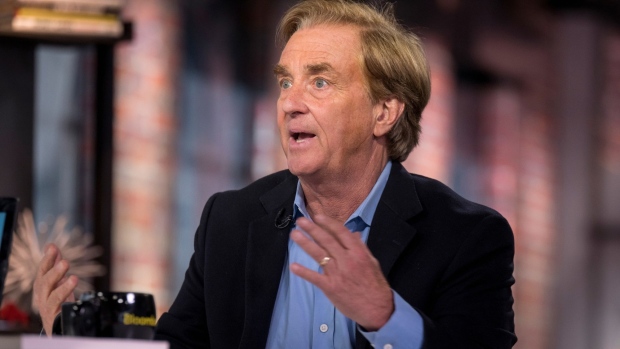Dec 1, 2021
Facebook Whistle-Blower Returns to Congress to Talk Regulation
, Bloomberg News

(Bloomberg) -- The whistle-blower who revealed thousands of internal Facebook documents will renew her call for regulation of a social-media business model that she says puts profits over the health of its users and global democracies.
Frances Haugen, a former Facebook product manager, will return to the Capitol to testify Wednesday before a House subcommittee on technology, as lawmakers weigh proposals to reduce legal liability protections enjoyed by online platforms under Section 230 of the 1996 Communications Decency Act.
“Facebook wants you to get caught up in a long, drawn out debate over the minutiae of different legislative approaches,” Haugen plans to say, according to her prepared remarks. “Please don’t fall into that trap. Time is of the essence.”
While there’s remarkable bipartisan support for tougher internet regulation, there’s scant consensus on the best way to set guardrails for a complex and ever-changing industry. Four of the bills that would change Section 230 will be part of Wednesday’s discussion.
The internal documents that Haugen shared with journalists, Congress and securities regulators, over the past several months, revealed that leaders of Facebook and its parent company, now known as Meta Platforms Inc., were aware of the mental health and societal risks posed by its platforms. The revelations have sparked renewed outrage in Washington, where Facebook was already encountering antitrust scrutiny and criticism over the spread of misinformation concerning the coronavirus pandemic and last year’s election.
Read More: Facebook’s Algorithms Increasingly in Sights of Lawmakers
James Steyer, head of the family-focused nonprofit Common Sense Media, who will also testify Wednesday, said he expects Congress to coalesce around measures to improve privacy, hold platforms accountable and address the concentration of industry power in the hands of companies like Meta, Amazon.com Inc., Apple Inc. and Alphabet Inc.’s Google.
Next year “is going to be the year of tech legislation and regulation,” Steyer said in an interview. “It’s not about Democrats and Republicans. It’s about America’s kids and families and our democracy and our sense of right and wrong.”
In previous testimony before a Senate subcommittee and the U.K. Parliament, Haugen encouraged lawmakers to regulate how platforms speed information around the internet. She said online tools should be more chronological and “human-scaled,” rather than prioritizing engagement that can draw more advertising dollars -- but can also make harmful content quickly go viral.
Facebook has dismissed Haugen’s allegations, saying she didn’t work directly on some of the issues she raised, even though she provided Congress with relevant documents. The company has also pushed back on claims that its platforms drive polarization and has pointed to investment in content moderation and automated systems to identify harmful information.
While some elected officials, including former President Donald Trump, have called for Section 230 to be repealed entirely, most lawmakers have proposed a more targeted approach that would hold tech companies liable for business decisions that influence the flow and quality of information. Congress is increasingly looking to regulate how platforms use algorithms to shape a user’s experience.
Read More: Whistle-blower’s Guide to Fixing Facebook Centers on Algorithms
Haugen has met with other congressional committees behind closed doors, including the House Intelligence panel, according to a committee aide. Other panels also have access to the trove of documents she copied before leaving Facebook.
Haugen, who worked on Facebook’s Civic Integrity and Threat Intelligence teams, has promised to be a resource for lawmakers investigating how Meta’s platforms could have been used to undermine national security and public confidence in democratic elections.
Adam Mosseri, the head of Meta’s photo-sharing service Instagram, will testify before the Senate Subcommittee on Consumer Protection, Product Safety, and Data Security next week about the risks his platform poses for young people. In a video posted online, Mosseri said he’ll talk about some recent changes at Instagram designed to provide more privacy options for teens and give parents more control.
©2021 Bloomberg L.P.





